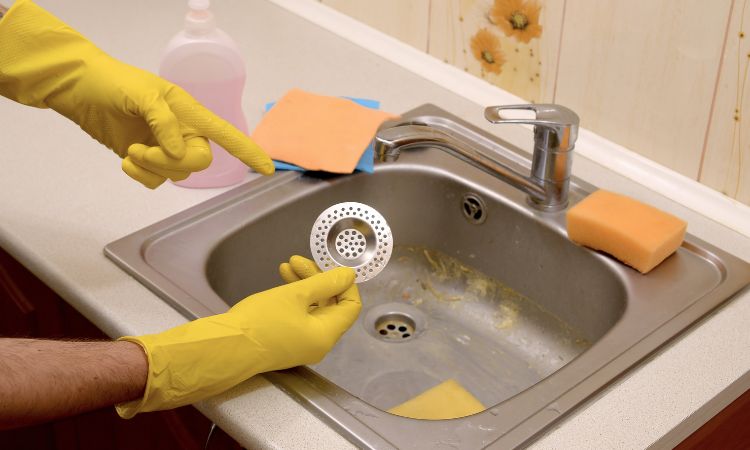Beginner's Guide to Bathroom Plumbing: Essential Guidelines
Beginner's Guide to Bathroom Plumbing: Essential Guidelines
Blog Article
What're your thoughts and feelings on Smart Plumbing Tips for New Homeowners?

For brand-new homeowners, understanding and maintaining restroom pipes can conserve both money and time by protecting against pricey issues down the line. Here are some important washroom pipes pointers to aid you maintain every little thing running efficiently.
Acquaint Yourself with the Key Shut-Off Shutoff
Recognizing where the major water shut-off shutoff lies in your house is critical. This permits you to quickly turn off the water supply in case of significant leakages or throughout pipes emergencies, protecting against considerable water damages.
On A Regular Basis Check for Leakages
Small leaks can result in big problems. Regularly examine under sinks, around commodes, and near pipes components for any type of indicators of leaks. Seek dampness, little drips, or corrosion. Capturing and repairing leaks early can stop more severe damages and conserve water.
Don't Disregard Slow Drains
If your sink or bath tub is draining pipes slowly, it's commonly an indication of a clog forming. Resolving this early can prevent a full obstruction. Utilize a plunger or a plumber's serpent to clean out debris. Stay clear of utilizing chemical drain cleansers as they can damage your pipelines gradually.
Know What Not to Flush
Toilets are not garbage disposals. Prevent purging anything besides bathroom tissue and human waste. Products like wipes, feminine hygiene items, and cotton swabs should be dealt with in the garbage to prevent obstructions and sewer back-ups.
Install Strainers in Drains
Area strainers in your sink and bath tub drains to capture hair and various other debris prior to they enter your plumbing system. Cleaning the filters regularly will assist prevent build-up and keep water streaming openly.
Preserve Your Water Heater
Guarantee your hot water heater is set to an appropriate temperature level (usually about 120 degrees Fahrenheit) to avoid hot and decrease power use. Flush the storage tank each year to remove debris build-up, which can reduce the effectiveness and life-span of your heating system.
Upgrade Your Fixtures
If your home has older components, take into consideration upgrading to much more reliable designs. Modern bathrooms, showerheads, and taps are designed to utilize much less water while giving good pressure, which can significantly lower your water expense and ecological impact.
Beware with Do It Yourself Pipes Repair Works
While it's alluring to manage all home repair work by yourself, be cautious with plumbing. Some issues might call for specialist experience, especially if they include main water lines or sewage system fixings. Hiring a professional can in some cases be much more economical than DIY, especially if it avoids further damage.
Prepare for Cold Weather
Safeguard your pipes from cold throughout cold weather by protecting pipelines in unheated areas like basements, attics, and garages. Throughout severe chilly, let cold water drip from faucets served by exposed pipes to aid avoid freezing.
Schedule Normal Upkeep
Take into consideration organizing yearly inspections with a certified plumbing technician. They can detect concerns that you could miss out on, such as surprise leakages or damage on pipelines and fixtures. Regular maintenance aids expand the life of your plumbing system and can stop emergencies.
Conclusion
Recognizing and keeping your home's shower room plumbing can prevent several usual concerns. By complying with these important tips, you can guarantee your shower room remains practical and efficient, conserving you time and money in the long run.
Essential Plumbing Tips for Homeowners: Keep Your Pipes Flowing Smoothly
As a homeowner, understanding the basics of your plumbing system can save you time, money, and a lot of headaches. Plumbing issues can range from minor annoyances like dripping faucets to major problems like burst pipes that cause significant damage. This guide provides essential tips to help you maintain your plumbing system and tackle common issues.
Understanding Your Plumbing System
Supply System: Brings fresh water into your home from a municipal source or a well. Drain-Waste-Vent System: Removes wastewater and vents sewer gases outside. Fixtures and Appliances: Includes sinks, toilets, showers, dishwashers, and washing machines. Basic Maintenance Tips
Regular Inspections: Periodically check for leaks, corrosion, and other signs of wear and tear. Look under sinks, around toilets, and near water heaters. Know Your Main Shut-Off Valve: In case of a major leak, you’ll need to shut off the water quickly. Ensure everyone in your household knows where the main shut-off valve is located. Prevent Frozen Pipes: In cold climates, insulate exposed pipes and let faucets drip during extreme cold to prevent freezing. Use Strainers: Install strainers in sinks and tubs to catch hair, food particles, and other debris that can cause clogs. Common Plumbing Issues and Solutions
Clogged Drains:
Prevention: Avoid pouring grease down the drain and use drain screens to catch debris. DIY Fix: Use a plunger or a plumbing snake to clear minor clogs. For stubborn clogs, a mixture of baking soda and vinegar can sometimes help. Leaky Faucets:
Prevention: Replace washers and seals regularly. DIY Fix: Turn off the water supply, disassemble the faucet, and replace worn parts.

Book Maintenance Report this page